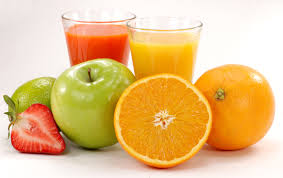Did you know that March was National Nutrition Month? This annual educational initiative, sponsored by the Academy of Nutrition and Dietetics, focuses on the importance of sound food choices and physical activity.
As April begins, here are some tips to help keep you on track the whole year through:
General Aging
Our nutritional requirements change as we age, and we must be conscious of giving our bodies the nutrients they need as we grow older. Older adults should provide their bodies with extra calcium, focus on hydration and participate in exercise. Whole milk and cheese are excellent calcium supplements; I encourage you to slip them into mashed potatoes and other starchy dishes for added nutrition.

But, don’t focus on food alone! Beverages should also figure into your nutritional plan. Seniors are at increased risk for dehydration for a few reasons, one being decline in lean body mass, which has a higher percentage of water. Over the age of 85 your body water content drops from 70% to 60%. As we age, our thirst sensation declines. Older adults should make it a goal to drink at least six 8 oz. glasses of water daily, and should supplement with other healthy beverages for flavor and variety.
I enjoy seeing residents switch up their beverages depending on the time of day and year. Orange juice packs a Vitamin C punch for mornings, hot tea warms the body on chilly winter nights and water with added fruit is refreshing during hot, sunny days.
Rehabilitation
For adults facing illness or surgery, food is an essential ingredient in the recovery process. When working toward wellness, I encourage rehabilitating seniors to clear at least three-quarters of their plate at every meal.
Protein is a priority, along with multi-vitamins, which can accelerate the healing process, such as muscle building and bone healing, ensuring that bodily systems are performing well. Vitamin C is a superstar in wound healing; it helps build a protein called collagen that’s needed to repair tendons, ligaments and heal surgical wounds. Foods like citrus fruits, strawberries, baked potato, broccoli and bell peppers all contain high levels of Vitamin C and are beneficial to the healing process.
If a fall leads to bone fractures, our staff recommends an abundance of calcium-based foods and Vitamin D in your daily diet, such as low fat dairy foods. Fat-free milk has slightly more calcium than full-fat or low-fat milk and is fortified with Vitamin D to help absorb calcium. Building bone strength through diet is one of the smartest things you can do to prevent injury.
Dementia & Alzheimer’s
When adults are diagnosed with dementia or Alzheimer’s, nutrition plays a crucial role in their wellness plan. People with dementia may forget to eat and, in some cases, need assistance at meals to ensure they do eat. For others, full plates of food become overwhelming. Loved ones and caregivers can cut food into small pieces to make it less intimidating and help seniors maintain that level of independence.
If someone with dementia loses interest in eating altogether, I’ve found that removing the meal for 5-10 minutes and trying again with small portions or even finger foods can help re-direct their attention and increase meal consumption. Limit distractions and noises to help someone with dementia focus on the meal, and consider offering more frequent small and nutritious meals through out the day if large meals overwhelm them.
Brain foods like blueberries and fish are key ingredients to a healthy mind at this stage, but older adults need not stick to stringent health food diets, especially if they’re underweight. Desserts can add on some needed calories for those struggling to maintain a healthy weight later in life. Not only do the sweet taste buds become more dominant later in life, but the Academy of Nutrition & Dietetics actually recommends a higher BMI for adults 65 and over. That stored fat can be relied on for fuel and energy if a person is injured or ill and unable to take in nutrients at a healthy rate.
I hope these tips on nutrition in the later years of life are helpful. If you have other questions don’t hesitate to contact us. Happy (and healthy) eating!
Tricia Shreve, RDN, LDN
Chicagoland Methodist Senior Services
